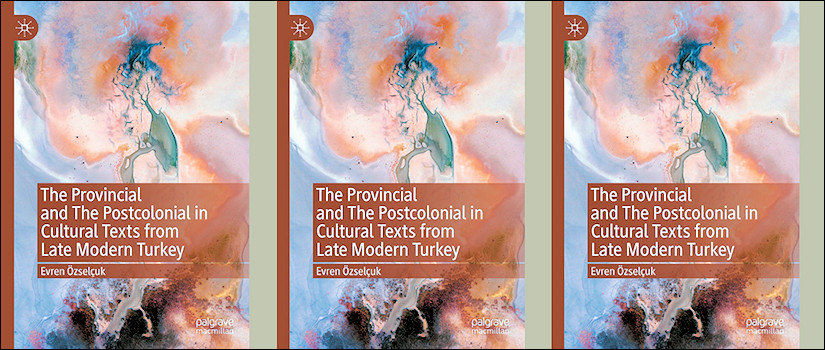Professor’s work explores depictions of Turkey’s provinces and of Turkey as a province
In The Provincial and the Postcolonial in Cultural Texts from Late Modern Turkey (Palgrave, 2022), Dr. Evren Özselçuk explores Turkey’s complicated relationship to modernity and its status within the new global order. She does so through a series of scintillating chapters that trace the ambivalent ways in which taşra (the provinces) is constituted in contemporary Turkish cinema and literature. Connoting much more than its immediate spatial meaning as those places outside of the center(s), taşra is a way of naming what modernity decries as spatial peripherality, temporal belatedness, and cultural backwardness. It has functioned historically as a psychosocial repository for what Turkish modernity degrades and disavows, enabling a mapping of the predicaments and contradictions of Turkish modernization and national identity-constitution. Organized around taşra as its central analytic and informed by postcolonial, psychoanalytical, and critical theory, the book examines the extent to which dominant codings of taşra are affirmed and/or complicated in cinematic and literary narratives by award-winning filmmakers Nuri Bilge Ceylan and Fatih Akın and Nobel laureate Orhan Pamuk.
Praise for Dr. Özselçuk’s book has been effusive.
"A fascinating, lucidly-written investigation of the provincial in the writings of Pamuk and the cinema of Nuri Bilge Ceylan, which also doubles as a wonderfully informative and varied introduction to some of the most significant moments within modern Turkish popular culture."
-- Ian Almond (Georgetown University, Qatar)
“Skillfully demonstrating how orientalism is translated by Turkish nationalism into an opposition between the urban and the provincial (“taşra”), this book offers a new framework for understanding contemporary Turkish culture. Its close readings make an invaluable contribution to our understanding of the postcolonial world by showing how the modernity of the nation found its negative energy in what it deemed provincial. Özselçuk develops a thought-provoking account of the complex relationship between cultural works and neo-liberal populism. Her book makes a unique contribution to scholarship in several fields, including Turkish Studies, postcolonial cultural studies, film and media studies and literary criticism.”
-- Mahmut Mutman (Institute for Advanced Social Research, Tampere University, Finland)
